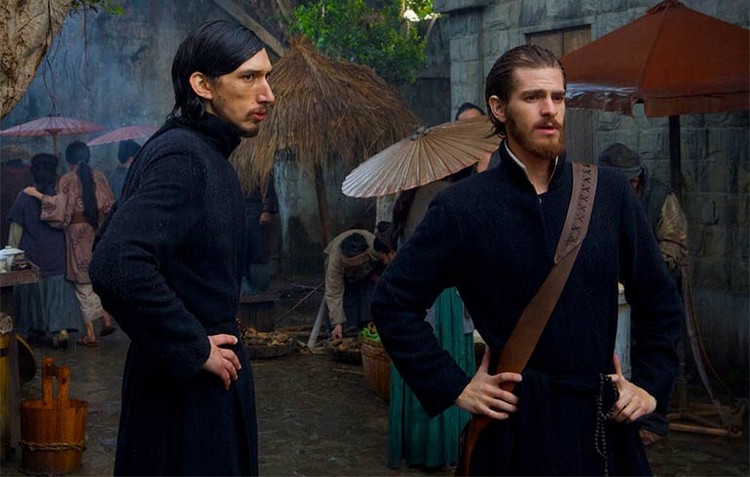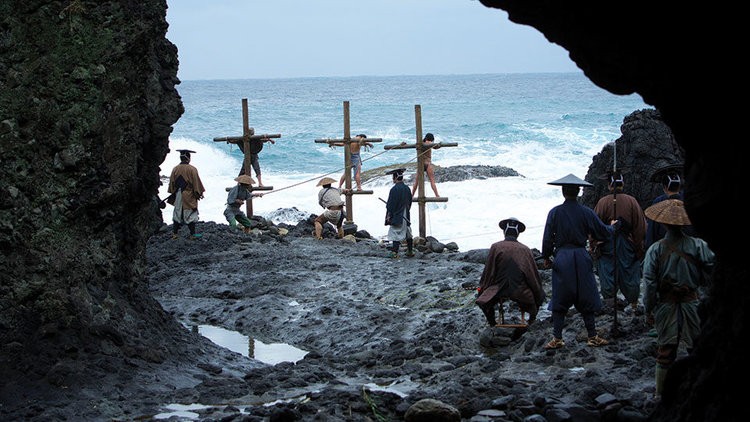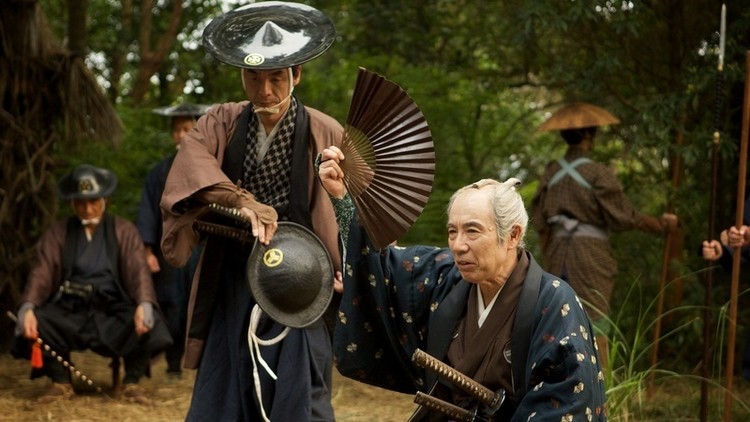Although his filmography is obviously diverse, most cinemagoers probably think of one thing when they hear the name Martin Scorsese – and that’s urban crime. Many of the director’s most famous films have centred on gangsterism and the “mean streets” of New York City. Think Goodfellas, Taxi Driver, Gangs of New York and the Boston-set The Departed.

The thing is, for all his movies about hot-tempered and frequently unhinged tough guys, Scorsese is also the man responsible for The Last Temptation of Christ and Kundun. His latest effort, historical drama Silence (now out on DVD), slots in with those two spirituality-centric movies. Silence isn’t crowd-pleasing Scorsese, where the audience ends the movie grinning and/or grimacing over the brutality of swaggering antiheroes; it’s quiet, thoughtful Scorsese where you’re left with loads to ponder.
Based on the novel by Shusaku Endo – itself loosely based on historical events – Silence sees two idealistic Jesuit priests, Rodrigues (Andrew Garfield) and Garupe (Adam Driver) head off to feudal Japan to find their missing mentor Ferreira (Liam Neeson). The problem is that it’s the 17th Century and Christianity has been outlawed by the ruling Tokugawa shogunate, who view it as a foreign cultural invasion. The young men are risking their lives, and the lives of any Japanese Catholics that they minister to.

The set-up for Silence doesn’t sound that different from The Heart of Darkness, or its Vietnam War adaptation Apocalypse Now. However, Scorsese’s movie is no surreal descent into madness. What it is instead is a thought-provoking and clear-headed examination of faith.
Time and time again Rodrigues and Garupe are forced to watch the torture and execution of devout men and women. They, along with the audience, start to question: Why does God do nothing for his faithful? What meaningful consolation can the priests give in these hellish circumstances? How can you encourage suffering to make a point about your religion? Is it more important to speak up as a Christian and die horribly, or secretly continue living as one? What would Christ do; what sacrifice would He make? Silence is heady stuff, but it’s not pretentious or preachy. The film challenges with its questions, but wrestling with them feels rewarding instead of frustrating. Plus, you’ll continue to grapple for answers long after the credits roll. Silence offers no easy, soul-soothing solutions.

At 154 minutes, Silence is long, but you don’t feel it for the most part. Continual tension is generated by Rodrigues and Garupe’s need to survive covertly in an unfamiliar land. The priests, along with the audience, never know which villagers can be trusted. The film is a bit too issue-minded and cerebral to fully engage the heart, but that means you’re never emotionally manoeuvred as you would be when watching a Ron Howard or Steven Spielberg movie.
Silence’s emotional charge lies in its universally excellent performances. The most important of these belongs to Andrew Garfield. His highly empathetic Rodrigues is the film’s narrator, and the figure who changes most over the course of the story. Silence came out when Garfield was already being praised for Hacksaw Ridge, which probably resulted in his work here being somewhat overlooked. Scorsese’s movie highlights the surprising emotional range of the actor, not to mention his commitment to physical transformation. There are a few contenders for the title currently, but if he continues on this path, Garfield could easily emerge as this generation’s Daniel Day-Lewis.

Still speaking of performances, special mention must also go to Issey Ogata, as the all-too-reasonable Inquisitor leading the persecution of the Christians. Ogata feels like a Japanese Christoph Waltz, and he invigorates every scene he appears in.
Now Silence definitely isn’t a movie for everyone. Sensitive viewers may struggle with the torture scenes, and if you’re a hardline atheist, the movie will probably have little significance to you. Everyone else though, should put in the time and effort to watch Silence.
It’s far removed from what the filmmaker is known for, but this slower-paced Scorsese effort is rich with philosophical rewards.
Last Updated: September 18, 2017
| Silence | |
|
Perhaps not as moving as it could be, Silence is still a thought-provoking and clear-headed examination of faith from director Martin Scorsese. Exceptionally acted, this is meaningful slow-burn cinema for adults.
|
|
|---|---|
|
| |




















Original Heretic
September 18, 2017 at 15:26
https://uploads.disquscdn.com/images/b29cc77fa9f188d473b1edc94c1f89998413752a3ece9d195be1ece40c52fcfc.png